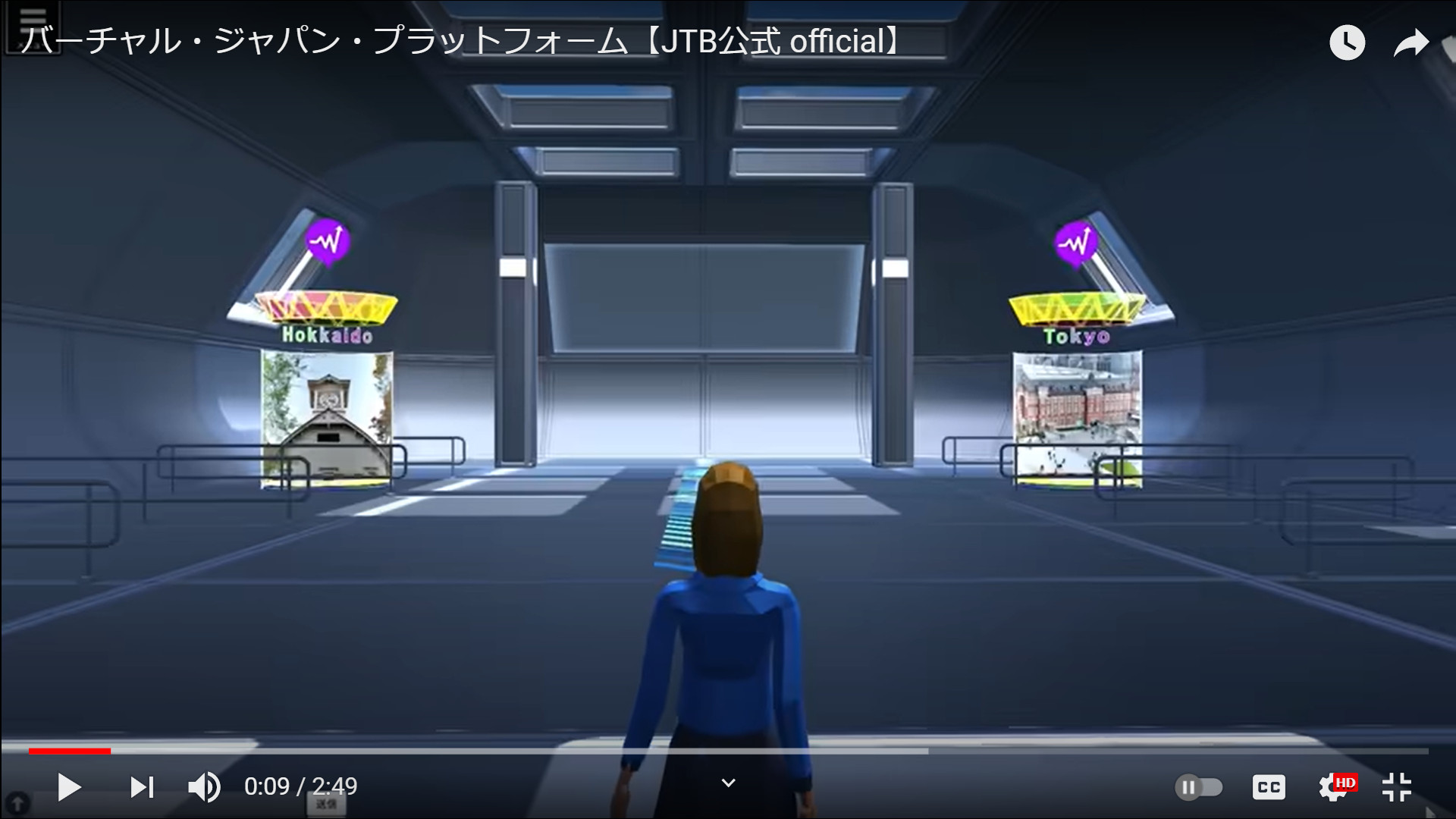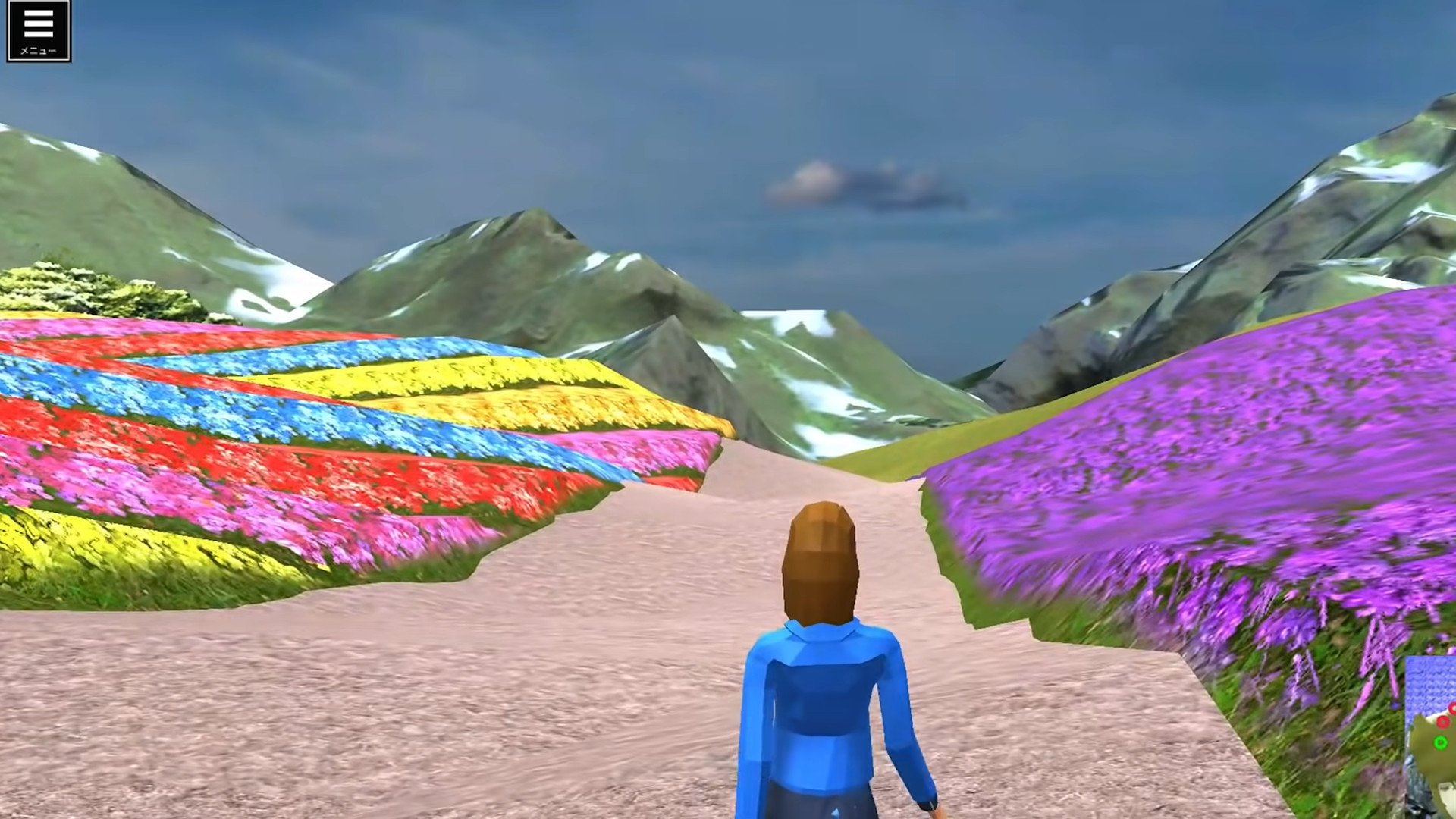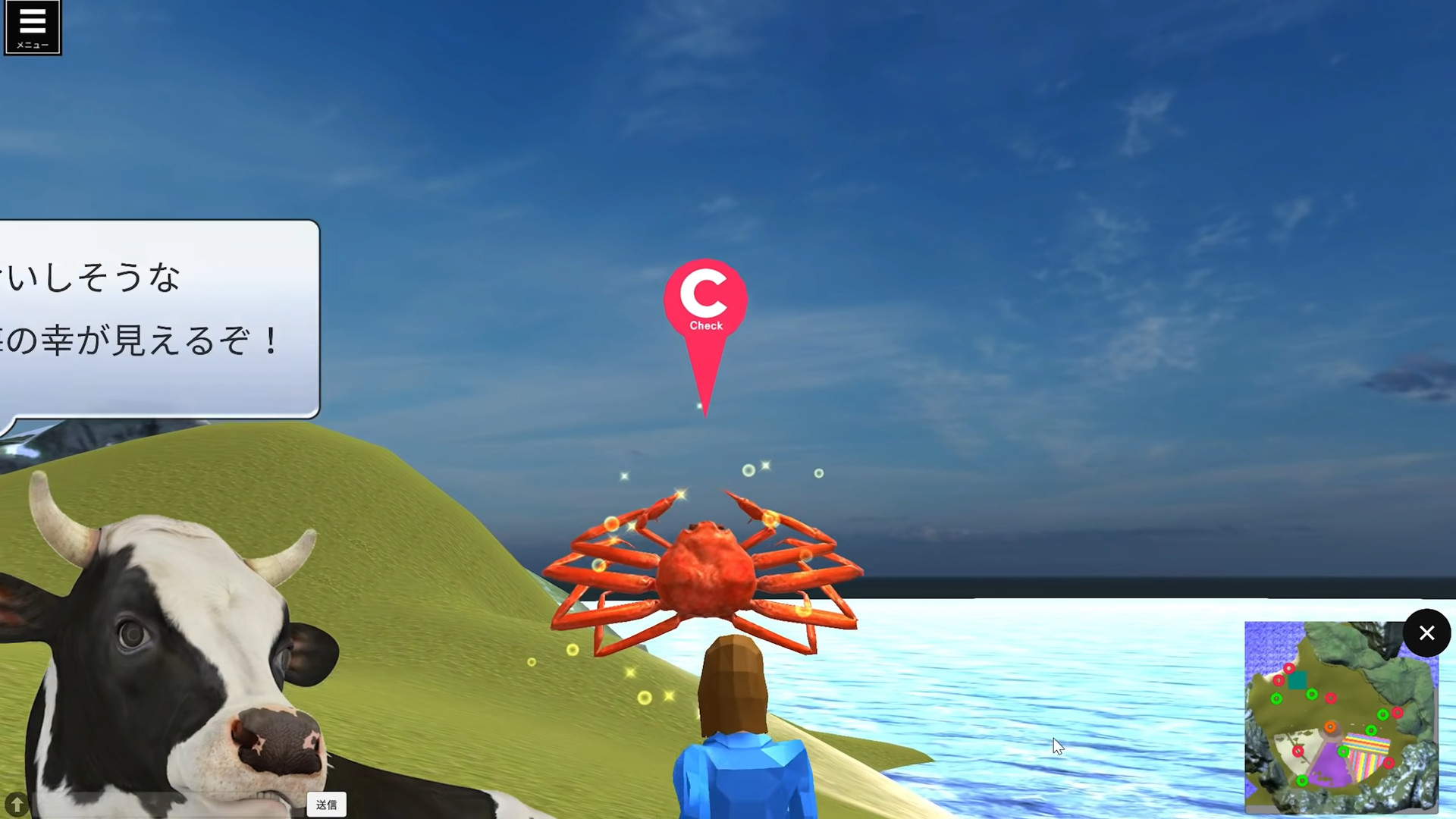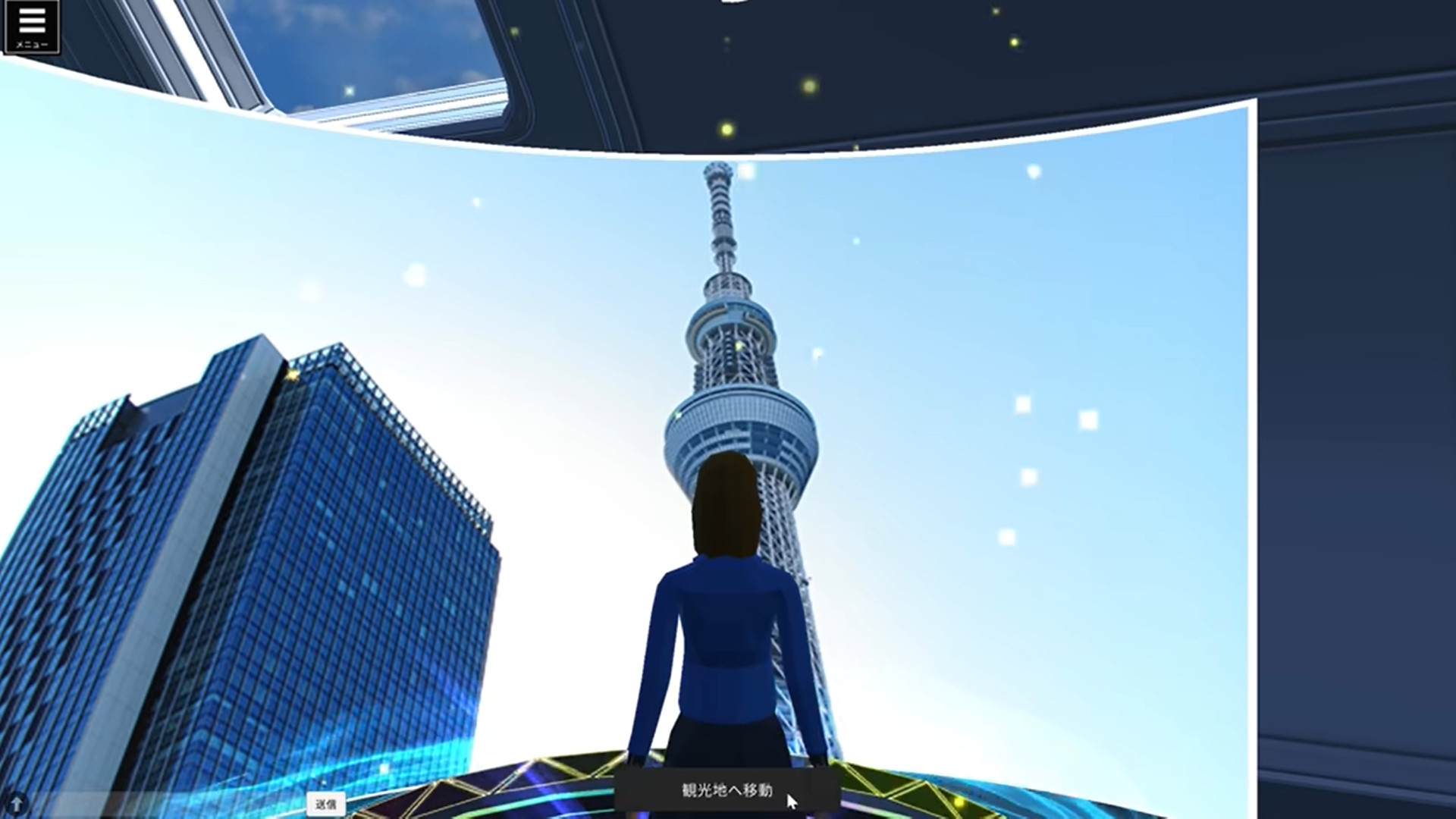
The concept is great, but the execution? Not so much.
These days we’ve come really far when it comes to the quality of CG in films and video games. With a nice fluidity of movement and smoothness of picture, many companies are able to use computer graphics to create beautiful, detailed scenes with a supremely realistic look that blends seamlessly with live-action shots, or in the case of video games, that immerse you in the game.
As a result, that level of quality of CG–or at least, something close to it–has pretty much become expected of most digital productions. So when this video of a new virtual tourism service created by travel company JTB and two other companies came out, people were blown away by just how utterly awful the graphics are.
For a program that is meant to convey the beauty of Japan to those living overseas, it sure doesn’t do a good job of it. Not only are the graphics flat, missing out on the exquisiteness of detail that comes with many game-like experiences these days, but the transitions and camera movements are blurry and hurt the eyes. From the few snapshots shared in the video, it looks like a video game you might have played on the computer circa 1997, or the type of graphics you might have seen on the Nintendo 64 a quarter of a century ago.

JTB worked together with media company Fun Japan Communications and virtual event company FIXER to create this extended reality (XR) virtual experience of Japan, which is called Virtual Japan Platform. Supposedly, you can use it to enjoy shopping and sightseeing in a virtual space, but as one Japanese netizen put it, “The CG is so bad it has absolutely no appeal at all. It reminds me of playing Second Life 15 years ago.”
▼ Even JTB’s president Eijiro Yamakita got his own avatar. That’s not nearly as cringey as the lame fist-bump he exchanges at the end of the video with Fixer’s president, Seiichi Matsuoka, though.
CGがひどくて全く魅力がないんだが。15年以上前のセカンドライフを思い出す。
— 係長 (@cakari14) April 8, 2021
JTB、バーチャル空間で日本を体験するプラットフォーム構築、アバター操作で観光や地方特産品のeコマースも | トラベルボイス https://t.co/irMh0chQmh pic.twitter.com/xM48NbaIdI
The way the service works is probably very similar to Second Life, in fact. Users get to make their own avatar, which they use to travel and explore Japan, while interacting with other Avatars along the way. Unlike Second Life, though, this is a paid service; it seems as though users have to purchase each area in order to experience it. Businesses and organizations can also sign up to use the service to sell specialized products and experiences to users.
The service is available now, but user registration is being slowly opened up, starting with the Asia-based members of JTB and Fun Japan Communications’ joint project “Fun! Japan”, which uses media to showcase Japan. Over time, they intend to roll out membership to members of other countries as well. By 2024, they hope to amass 10 million users.

Judging by Japanese netizen comments, though, they might not make it anywhere near that number:
“Wow, it’s not often a project fails this hard.”
“Did they make this on a Sega Saturn?”
“Wouldn’t working with some game company to use their CG engines have been so much better?”
“Look at this…I’m so embarrassed for them.”
“This is…too much…”
“It should be ‘Funny Japan’.”
“If it’s about virtual interaction, they already have a good model to work off in things like VRChat. As a VRChat user I’m astonished. This is so lackluster.”
“I thought it was an amateur game until I realized it was made by three companies lol. This is a little naïve of you guys…”
“Don’t pick on them! They wanted to save money. I totally get it.”
“Games made by indie creators that you can buy for 100 yen (about US$1) on Steam can do better than this.”
“Senior art projects for university students are better than this.”
▼ The architecture doesn’t look too bad, at least.

If you’re hankering to digitally explore Japan but aren’t particularly impressed with the graphics offered by this digital experience, don’t worry, there are plenty of other ways to get to know Japan through the Internet, especially now, in light of the pandemic. The Ghibli Museum, for example, has a virtual tour on YouTube, and the newly opened Super Mario World has an interactive website tour you can explore. You can also tour all 47 prefectures through YouTube, and even spend the night in a samurai castle from the comfort of your home!
While these experiences may not be the same as visiting these places yourself, at least they’re something to satiate your desire for travel until it’s safe to do so. At the very least, we can promise that the visuals are much, much more satisfying!
Source: YouTube/JTB Official, Twitter/@cacari14 via My Game News Flash, TravelVoice
Images: YouTube/JTB Official
● Want to hear about SoraNews24’s latest articles as soon as they’re published? Follow us on Facebook and Twitter!

No hay comentarios:
Publicar un comentario